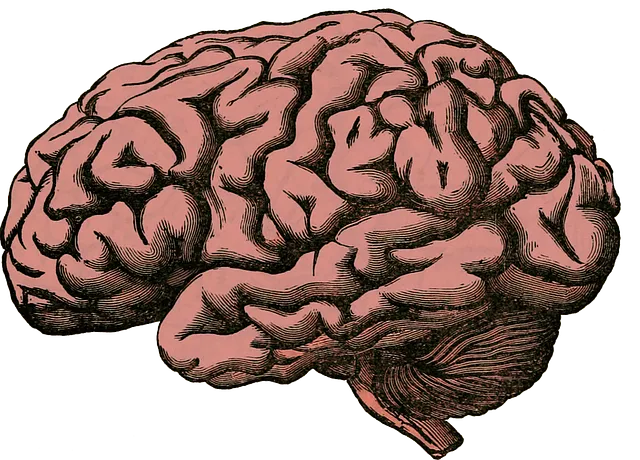The Kaiser Permanente mental health center reviews in Parker highlight a trend in digital wellness app development emphasizing accessibility and personalized support for diverse mental health needs, incorporating evidence-based practices like mindfulness exercises, cognitive behavioral therapy, and peer communities. Success depends on aligning functionalities with real-world therapy, leveraging data analytics, and providing robust features such as mood tracking and expert access. Platform selection, seamless integration with healthcare systems, and social skills training modules enhance user engagement and community building. By combining evidence-based practices with exceptional user experiences, developers can create effective mental wellness apps tailored to individual requirements.
“The rise of digital wellness solutions is reshaping mental healthcare. In this context, we explore the development of mental wellness apps, drawing insights from a Kaiser Permanente mental health center’s perspective. This article delves into understanding specific app needs, technical considerations like features and platforms, and ensures effectiveness based on Parker’s proven best practices. By integrating user experience principles, we aim to create tools that foster positive mental health outcomes.”
- Understanding Mental Health App Needs: A Kaiser Permanente mental health center reviews perspective
- Technical Considerations for Development: Features, Platforms, and Integration
- Ensuring Effectiveness and User Experience: Best practices based on Parker's insights
Understanding Mental Health App Needs: A Kaiser Permanente mental health center reviews perspective

A Kaiser Permanente mental health center reviews highlight the evolving landscape of mental wellness app development. With a focus on accessibility and personalized support, these apps cater to a wide range of needs. Mental health professionals within Kaiser Permanente emphasize that effective apps should go beyond simple mood tracking and offer evidence-based tools for coping skills development, burnout prevention, and communication strategies. By integrating features like mindfulness exercises, cognitive behavioral therapy techniques, and peer support communities, these applications can significantly enhance patient care and improve overall mental well-being.
The review underscores the importance of aligning app functionalities with real-world therapeutic practices. Incorporating user feedback and leveraging data analytics enables developers to refine these tools, ensuring they remain relevant and beneficial. A Kaiser Permanente mental health center reviews serve as a reminder that, in addressing modern mental health challenges, innovative digital solutions must be grounded in scientific rigor and tailored to individual user requirements.
Technical Considerations for Development: Features, Platforms, and Integration

When developing a mental wellness app, technical considerations play a pivotal role in ensuring its effectiveness and user appeal. Features like personalized therapy sessions, mood tracking tools, and access to mental health experts are crucial for a comprehensive app experience. Integrating Empathy Building Strategies and Self-Awareness Exercises within these sessions can significantly enhance user engagement and outcomes, as reviewed by the Kaiser Permanente mental health center in Parker. Platform selection is another critical aspect; choosing between iOS, Android, or both, depends on target audience reach and accessibility needs.
Additionally, seamless integration with existing healthcare systems and mental health platforms is essential for data synchronization and continuity of care. This includes considering APIs and secure data transfer protocols to ensure patient privacy. Incorporating Social Skills Training modules can also foster community building within the app, creating a supportive environment that encourages users to share experiences and learn from each other, as highlighted by numerous Kaiser Permanente mental health center reviews in Parker.
Ensuring Effectiveness and User Experience: Best practices based on Parker's insights

Developing a mental wellness app requires striking a delicate balance between effectiveness and user experience. Drawing insights from reputable sources like Kaiser Permanente mental health center reviews, developers must prioritize evidence-based practices. Incorporating features that align with research-backed strategies ensures the app provides genuine support.
Best practices include integrating mindfulness exercises and cognitive behavioral therapy techniques, as highlighted by Parker. Moreover, designing intuitive interfaces and incorporating feedback mechanisms fosters engagement. A Community Outreach Program Implementation can enhance accessibility, while Mental Health Education Programs Design within the app educates users on managing their well-being. Additionally, Burnout Prevention Strategies for Healthcare Providers can be adapted to benefit all users, ensuring long-term sustainability and a positive user experience.
The development of mental wellness apps, as evidenced by Kaiser Permanente mental health center reviews and Parker’s insights, is a multifaceted process. By understanding user needs, considering technical integrations, and focusing on effectiveness and user experience, we can create tools that significantly enhance mental healthcare accessibility and quality. As these applications continue to evolve, it’s crucial to stay informed with best practices to ensure they serve users optimally, fostering better mental health outcomes in today’s digital landscape.






